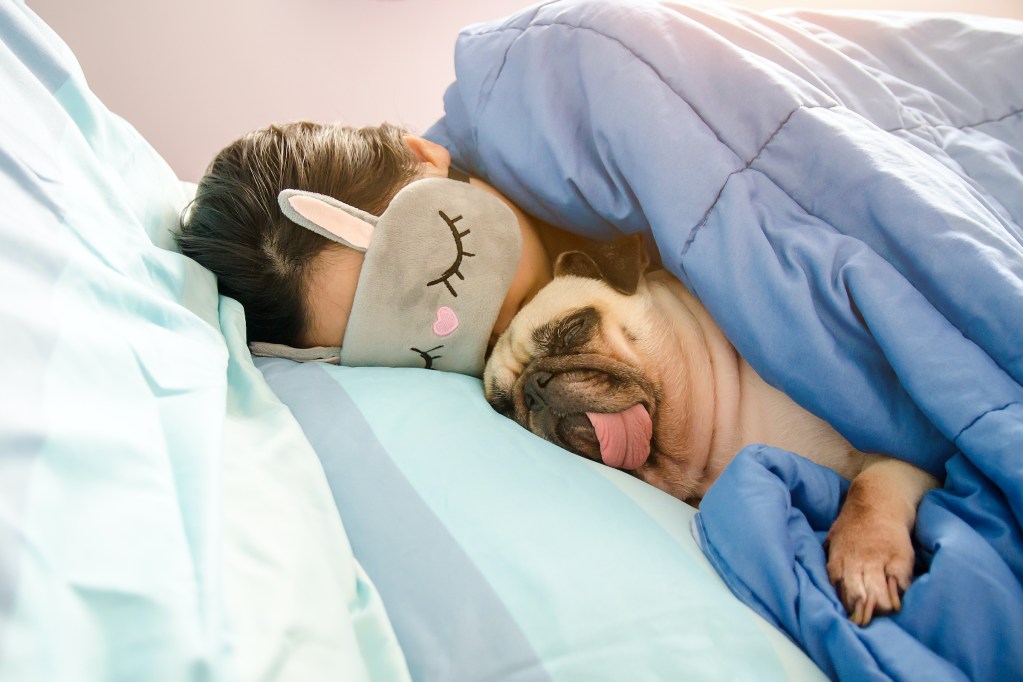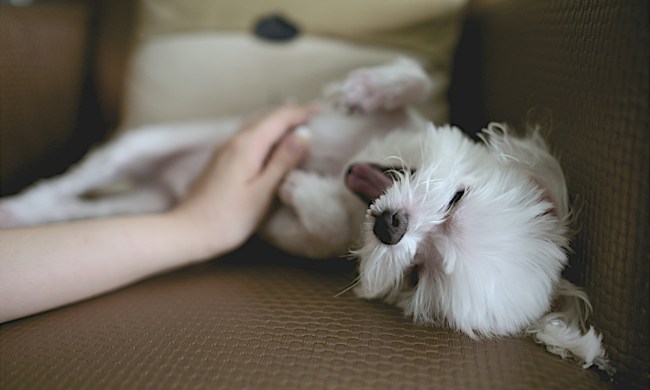If you’ve ever tossed and turned all night, you know it’s frustrating. Finally, finding the perfect sleeping position feels oh-so-good. Both humans and their furry friends can appreciate the bliss of discovering a comfy spot beneath the blankets, though it might not seem as normal for your pup’s sleeping routine. So, why do dogs sleep under the covers?
The reasons behind this adorable behavior may not surprise you, and they’re just as cute as you’d expect. Be careful while you read, though, or you may convince yourself to share your bed more often. Your dog will certainly get behind the idea of sharing a bed, but you might have to get used to having a lot less space while you sleep.
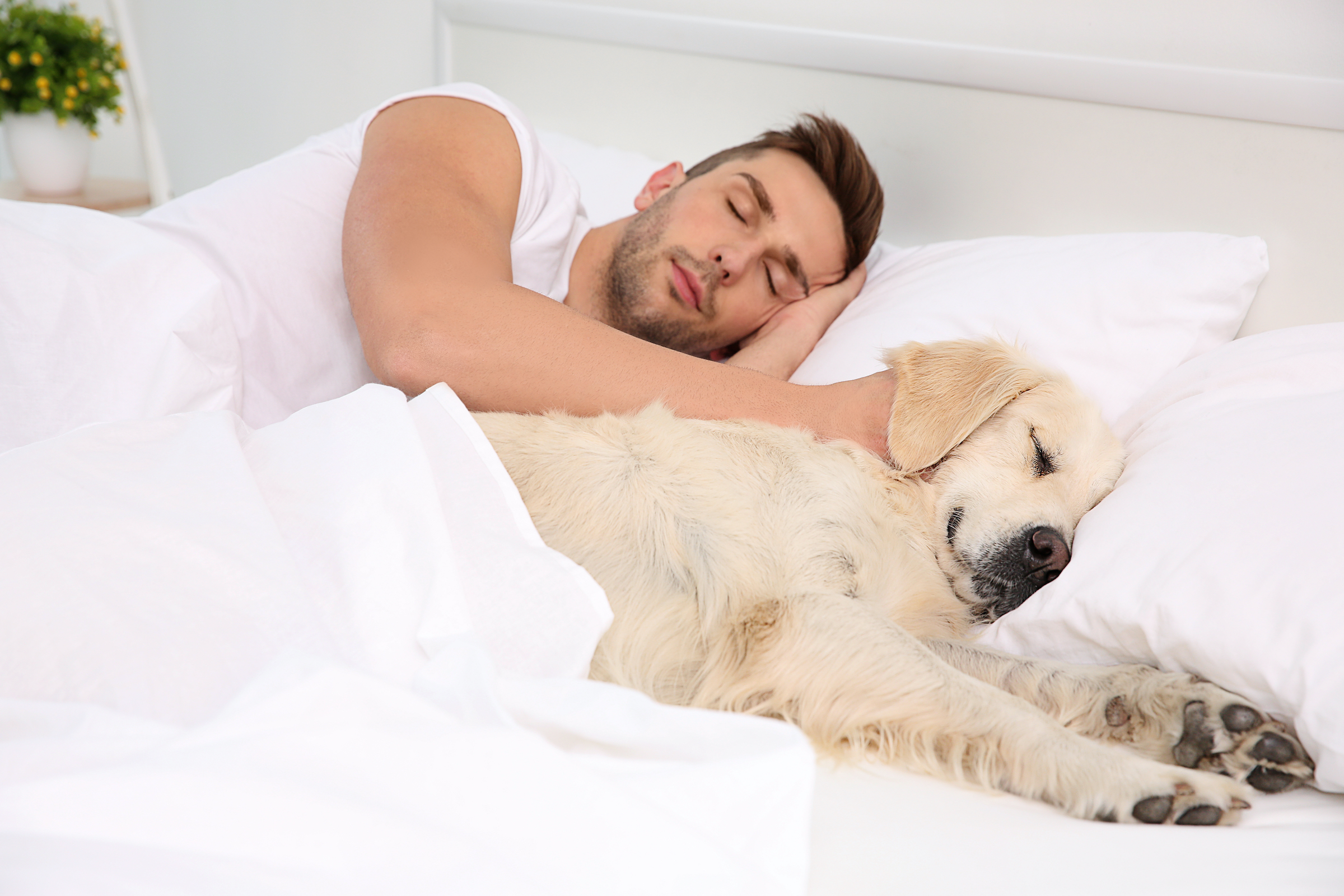
Why do dogs sleep under the covers? Here’s what experts say
You like to believe that your fur baby gets under the blankets just to get closer to you … and you may be partially right. Because dogs are pack animals, feeling the touch of a family member while sleeping can be the ultimate form of comfort and warmth. Your presence lets them know they’re protected and part of the pack, even if they only snuggle up when they feel anxious. This may feel especially comforting for pups who grew up with their siblings — just think about puppy piles.
Snuggling under the covers has instinctual roots, too. Not long ago, dogs and wolves were born, raised, and sheltered in dens or caves, so it’s easy to see why your pup might feel cozy in a small space of their own.
Canine behaviorist Clarissa Fallis explains that certain breeds might be even more likely to burrow. Small hunting breeds like dachshunds and beagles “tend to mimic their innate behavior of flushing out small animals from tunnels by burrowing.” She goes on to explain, “Larger burrowers, like huskies, live in extreme temperatures that make the instinct to burrow under the snow crucial for staying warm.”
Whether your fur baby is actually cold, anxious, or just used to a routine of denning behavior, burrowing is generally not a cause for concern. Of course, there are a few safety precautions you can take to make it the best experience possible.
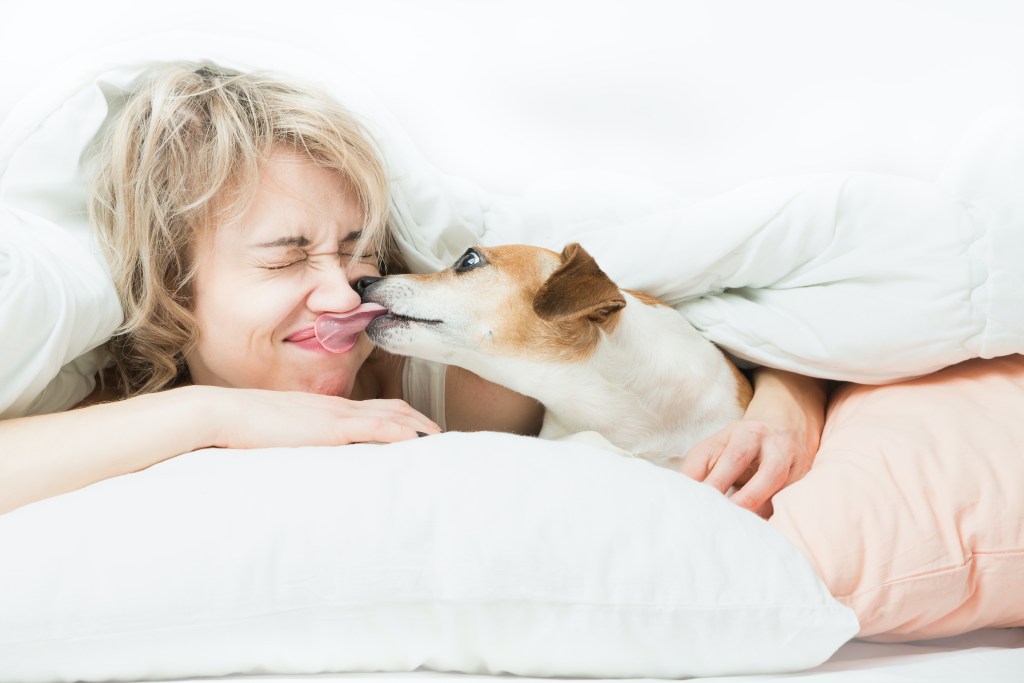
Is it dangerous for dogs to sleep under the covers? Should I stop bed-sharing with my pup?
While the act of sleeping under the covers is not inherently dangerous for canines, accidents can happen. A pup may panic if they get too warm and can’t find a way out from beneath the blankets, so make sure not to tuck in your sheets or corner your dog between you and your partner.
Many pet parents worry about their pup suffocating under blankets, but Dr. Malora Roberts of Deepwood Veterinary Clinic assures owners not to stress. Paying attention to a blanket’s material, she notes, is a great way to tell whether a dog may be uncomfortable: if you find it too heavy, your furry friend will too. Suffocating, though, is extremely unlikely. Should your dog become hot or short of breath, you can trust they will react quickly to get themselves out from under the covers.
You might be tempted to find a blanket with large holes to give to your pet, but this may do more harm than good. Not only will your curious puppers be able to claw and chew their blanket, making it much more likely to tear, but small limbs and bodies may get tangled in the fabric, too. Instead, opt for a lightweight blanket if you can, or only let your pup under the top layer of your bedsheets.
Lastly, it’s understandable why you’d feel concerned if you only notice your dog burrowing when they feel anxious. This isn’t a harmful way of coping — in fact, it’s probably very helpful — but showing excessive symptoms of anxiety can be dangerous in its own way. Long-term stress has a variety of consequences, after all, a vet visit or two can get you well on your way to solving your pup’s troubles.
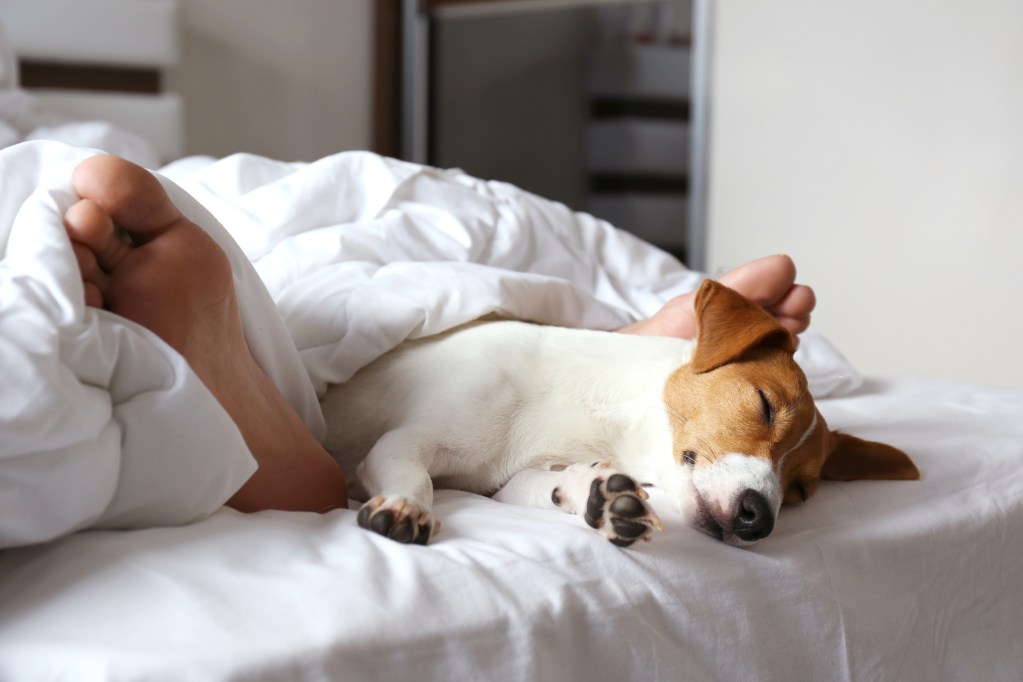
Should all dogs be allowed to sleep under the covers?
While it might be tempting to let your pooch snuggle up at bedtime, there are a few ground rules you should keep in mind. Small breeds, senior dogs, young puppies, and dogs with arthritis may not be able to physically free themselves from beneath the blanket while you’re asleep. Similarly, brachycephalic breeds, such as bulldogs, are prone to overheating. When in doubt, always make sure your pup has easy access to slip out from beneath the covers while you sleep.
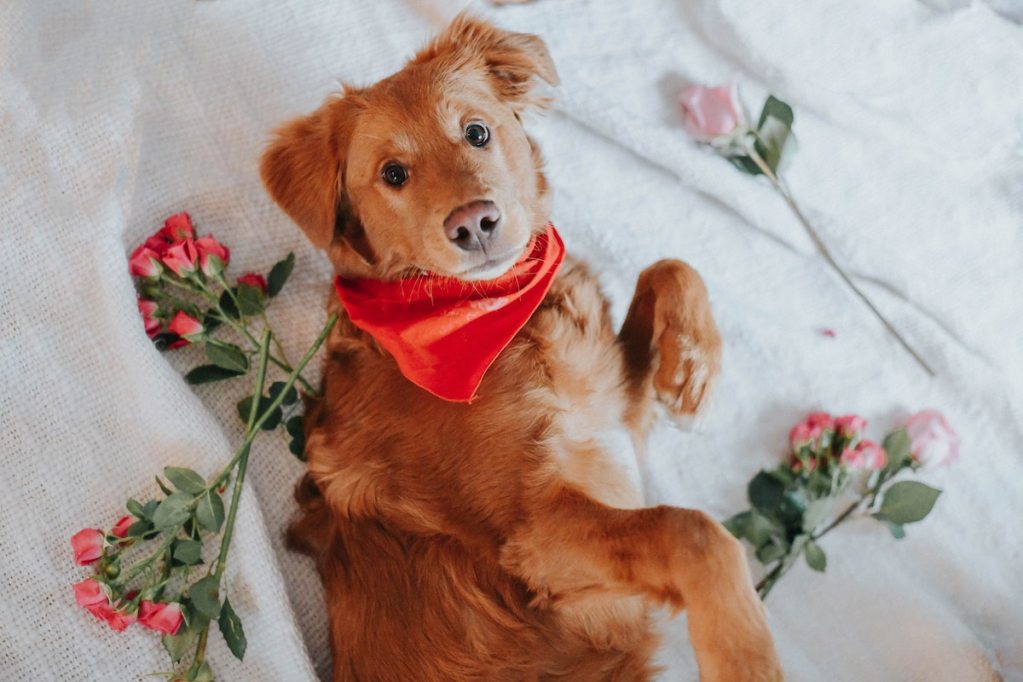
Why shouldn’t dogs sleep under the covers?
Generally, there’s nothing wrong with a dog sleeping under the covers. The biggest reason to forego this arrangement personal preference — yours, your human bed partner’s (if applicable), your dog’s, or both. Some people or dogs simply want their own space, and even tiny dogs like Chihuahuas can make a habit of taking up a ton of room on the bed. Sometimes, those nighttime cuddle requests can disrupt a person’s sleep, in which case you may be better off giving your dog a bed they love.
Others may have allergies, which are exacerbated by a dog sleeping under the covers. Small breeds and senior dogs, or ones with limited mobility from conditions like arthritis, may also struggle to get on or off a bed or under the covers. Brachycephalic breeds can have breathing difficulties, so pet parents may be concerned about letting their pet sleep under the covers. If you cave, make sure they have an easy out from under the covers (this advice is good for any dog).
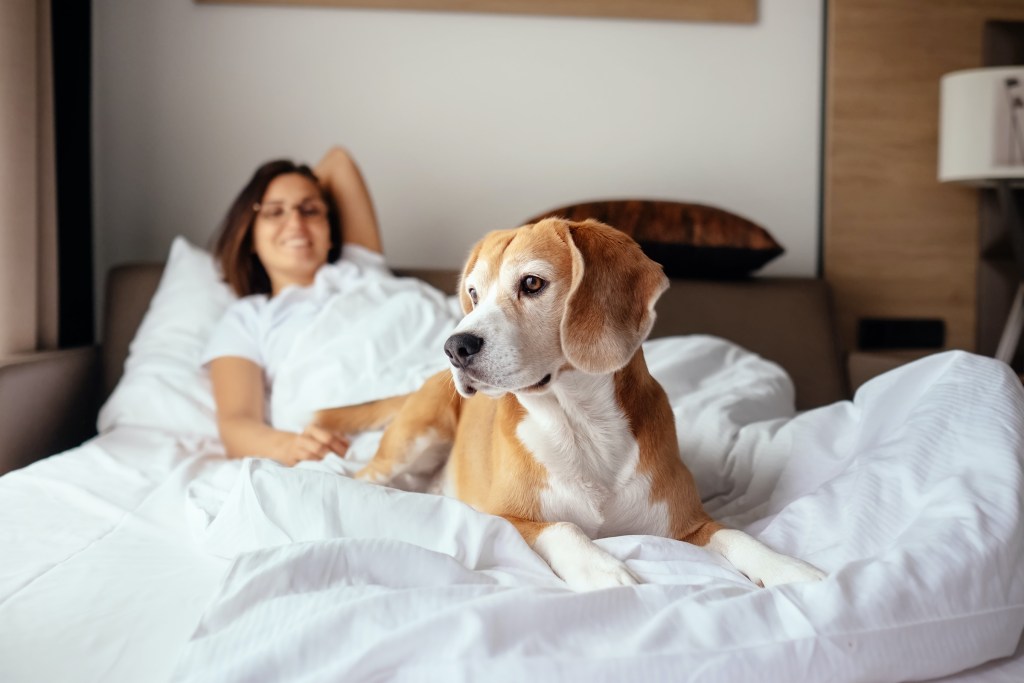
Final thoughts on letting your dog sleep under the covers
Overall, it can be great for your dog to share the bed with you, whether they decide to burrow under the covers. Getting cozy has both physical and emotional benefits for your beloved fur baby — so what are you waiting for? Let the snuggles begin.
If it’s not for you, your pup can sleep in a crate or dog bed instead.
